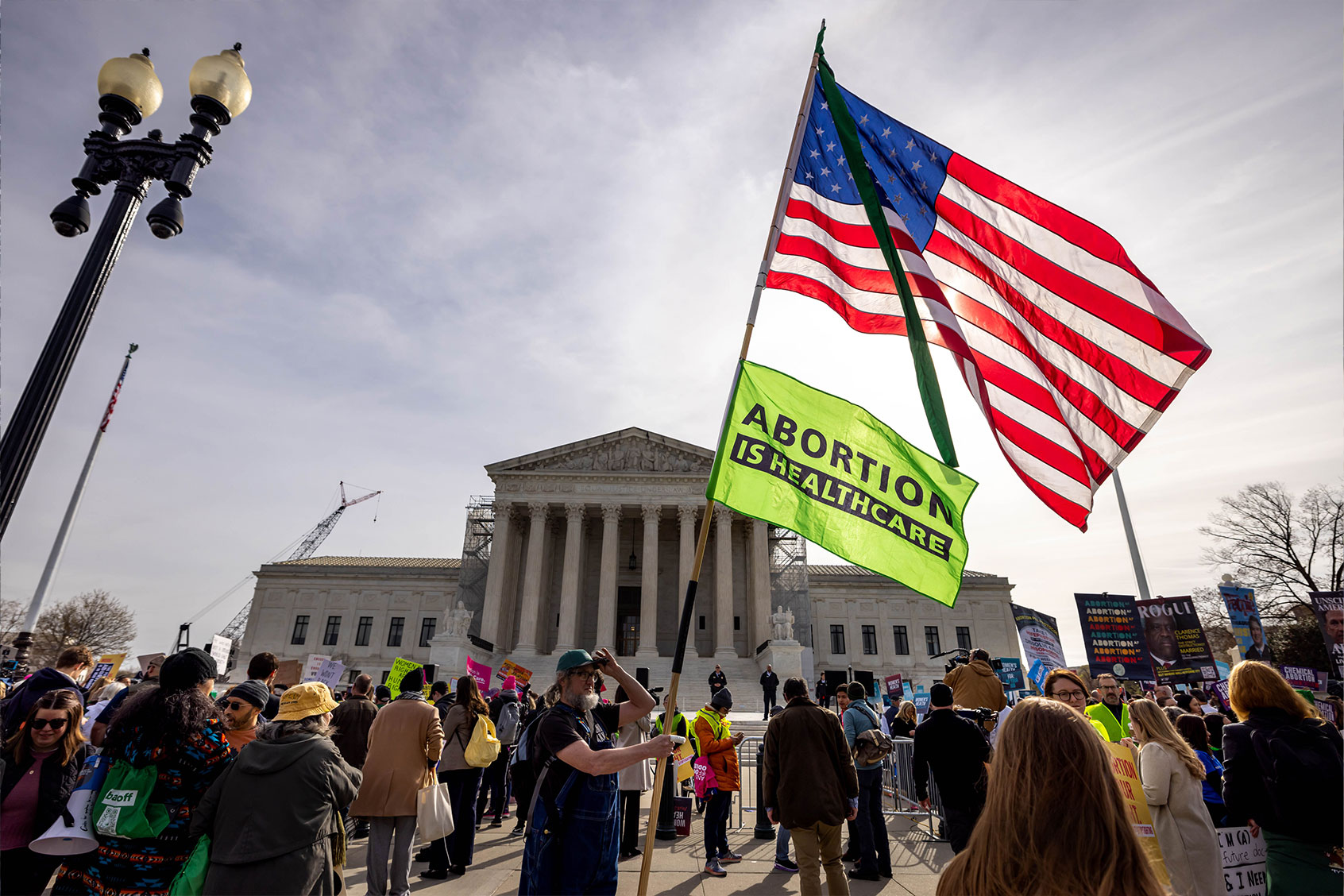Arizona's Supreme Court has rolled back the clock on reproductive freedom in the state, ruling Tuesday that a 160-year-old law banning abortion should go in effect now that Roe v. Wade has been overturned.
Writing for the 4-2 majority, Justice John R. Lopez IV argued that an 1864 ban on abortions should now be enforced, citing the absence of a "federal constitutional abortion right," the Arizona Mirror reported. The 1864 law calls for a mandatory prison sentence of two to five yeas for any doctor who performs an illegal abortion, the outlet noted.
Arizona's GOP-led legislature had passed a less severe ban on abortions after 15 weeks of pregnancy, signed into law by its last Republican governor, but the court ruled that law was superseded by the one already on the books — a law that provides an exception for protecting the life of a mother but not for victims of rape and incest.
At a press conference Tuesday, Arizona Gov. Katie Hobbs, a Democrat elected after the 2022 Dobbs decision, urged the legislature to "do the right thing" and pass a law protecting access to abortion. "I am devastated by this decision, and I know many Arizonans are as well," she said of Tuesday's ruling.
The Arizona high court's decision comes a day after former President Donald Trump once again boasted of his responsibility for Roe v. Wade being overturned. Since the U.S. Supreme Court's decision to overturn the 50-year precedent, there are now more than dozen state-level laws severely restricting abortion access.

